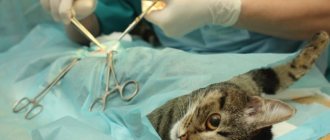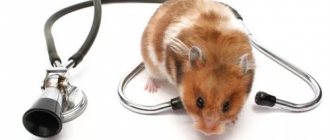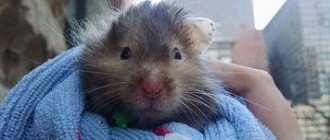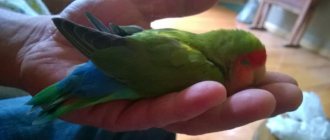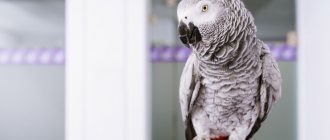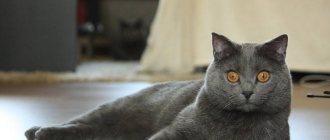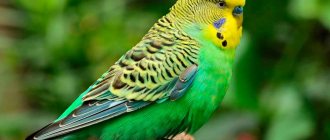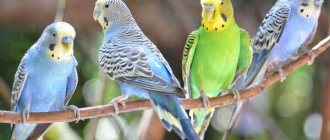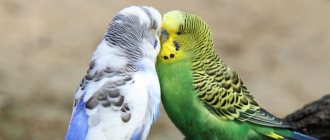- home
- Parrot
- Treatment
04/20/2019 Budgerigars in captivity feel no worse than their counterparts in natural habitats, if they are properly cared for.
A varied diet, good temperature conditions in the room and timely identified and treated diseases of budgerigars prolong their life. This article is to help those who want to know more about what health-related dangers await birds.
How to give medicine to a parrot
The medicine is mixed into the food. It is best if the veterinarian determines the daily dose individually. It depends on the age, type, size and disease of the bird. It is important to know that if you decide to treat a bird yourself, and the bird refuses to eat food and water, then the medicine must be forcibly administered through a syringe (without a needle).
The solution is poured through the corner of the beak very slowly so that the bird does not choke. The veterinarian usually uses a probe or intramuscular injection to administer the medication orally.
Video: how to give medicine to a parrot's beak
Signs of a Healthy Bird
The health of a parrot directly depends on its owner. If the food is correct and the cage is clean, then diseases of wavy pets are usually suppressed by strong immunity.
The main differences between a healthy bird and a sick bird include:
- bright and clean feathers;
- expressive look;
- clean beak;
- smooth scales on paws;
- interest in others;
- the pet sleeps on one leg.
If the bird fully matches the description, then it is completely healthy.
Common disease in parrots: self-plucking and feather eating
This is a fairly common disease in pets kept in poorly ventilated enclosed spaces.
. If the disease starts, it will be very difficult to rid your pet of the habit of pulling out feathers.
Diseases leading to self-plucking:
- giardiasis;
- stress.
But self-plucking rarely involves just one factor. Often this problem is cumulative. Thus, trouble can come in the event of poor nutrition, insufficient bathing, infringement of the rights of birds, poisoning, chronic bacterial infections, hormonal fluctuations, food allergies, etc.
You yourself are unlikely to find the cause of self-plucking, so a trip to the veterinarian is mandatory. Feather pulling cannot be caused by behavioral factors alone. In any case, there is at least one physiological reason!
Regrowth of beak and claws in parrots
Tree branches, mineral stone, and chalk are excellent solutions for preventing overgrowth of claws and beaks. In advanced situations, you need to go to a veterinary clinic, where the doctor can perform circumcision.
Video: how to trim a budgerigar's beak (careful, if you're not sure, don't try it!)
Poisoning in parrots
In case of poisoning and dehydration (usually characterized by diarrhea, vomiting), a 5% glucose solution is used: for small parrots - 0.2-0.4 ml per beak 1-3 times a day for a week, for medium parrots - 1-2 ml 2 -3 times a day for a week, for large parrots and birds - 4-15 ml 2-3 times a day for a week.
It is best to discuss the exact dosage with your veterinarian; when treating yourself, remember the main rule - do no harm!
The cause of poisoning can be anything: from table salt to household chemicals.
Whatever the cause of the poisoning, if you observe diarrhea, cramps and severe thirst in your bird, then you should give your pet an absorbent as soon as possible, which will help reduce the level of toxins in the body. It can be activated carbon, enterosgel, smecta
.
It is also recommended to heat the bird with a lamp (table lamp, for example) and add a few drops of citrus juice to the drinker.
Frequent vomiting, constipation and diarrhea in a parrot
Such symptoms usually indicate poisoning of the bird. But pathological vomiting should not be confused with natural regurgitation. If a parrot is poisoned, it begins to burp frequently after eating. And many bird owners don’t know what to do and what causes this phenomenon.
It could be:
- the result of overfeeding a pet;
- lack of vitamins;
- improper diet;
- diabetes;
- liver pathologies;
- peritonitis;
- poisoning by toxins;
- parasites.
Birds often develop diarrhea after vomiting. This is the result of salmonella infection. If a bird is severely dehydrated, it quickly weakens and may even die. In such cases, if the parrot is diarrhea and the owner does not know what to do, you should contact a veterinarian as soon as possible.
Birds can become infected with salmonellosis through contaminated food or dirty water. He has an increase in temperature, as well as apathy, blue beak and paws, liquid frequent green-yellow diarrhea interspersed with blood.
Causes of loose stools in parrots:
- Lack of microelements, goiter inflammation, fungus, dysbacteriosis or infection - undigested food in the form of small particles is present in the stool.
- A disorder in the gastrointestinal tract, a disease of the nervous system - black droppings with a large amount of liquid.
- Kidney failure or arthritis - a large number of white specks in the stool.
- Poisoning or parasites (liver affected) - bright green, yellow droppings.
- Overfeeding with fatty foods (the pancreas is affected) - white-gray droppings.
- The presence of parasites in the liver, lack of microelements - green liquid. You need to see a doctor urgently!
- If blood is found in the stool and you did not feed your pet beets, then in this case you should also immediately visit a veterinarian.
Causes of constipation in parrots:
- Poor quality food.
- Lack of water.
- Stress.
- Dirty cage.
- Eating inedible objects.
- Parasites that cause bloating.
- Fatty food.
- The owner does not let the bird fly.
If a parrot is constipated, many experienced parrot lovers advise this is what to do in this case: pour smecta through a syringe (pre-dilute the medicine in a small amount of water and drink 1 ml about once an hour), give liquid food and water.
You can also give 2-3 drops of castor or vaseline oil into the beak. In severe cases, you can try introducing 3-4 drops into the cloaca and massaging the tummy. But it’s still better to consult a veterinarian to avoid injury.
To prevent constipation in a parrot, the food should contain flaxseeds, vegetables and fruits.
Video: coughing and vomiting in a budgie
Why is your pet sick?
First, let's determine what affects the health of a parrot. Conventionally, all influencing factors can be divided into 4 categories.
The main causes of parrot disease
- Proper nutrition. Food for wavy birds must correspond to the food supply that birds have in their homeland in Australia. We are talking about grain crops, vegetables, fruits. Constantly feeding food from your table is unacceptable. An excess of salts, fats, and sugar has a detrimental effect on the body of parrots. The diet must contain vitamins.
- Proper care. Hygiene is no less important for birds than for their owners. Cleanliness in the cage, inspection and handling of things brought from unfamiliar places. If there are other animals in the house that have access to the street, then their contact with the bird must be excluded. These measures are necessary to exclude infectious diseases.
- Correct handling. Budgerigars are flocking birds. Communication is extremely important to them. Therefore, it is important to create a comfortable environment for your pet. The lack of conversation, interesting activities, and toys leads to a stressful situation for the wavy. And health problems will not take long to appear.
- Correct genetics. Close relationships negatively affect a pet's health, making it vulnerable to many diseases. If the problem was not identified at the time of purchase, then it is difficult for the parrot’s owner to influence this factor; they can only make the pet’s life a little easier.
Parrot diseases
Lipoma in a parrot
If a domestic parrot has a tumor on its belly, it is most likely a lipoma, that is, a tumor formation located at the bottom of the abdomen. Usually this is a benign neoplasm that grows not only on the abdomen, but also on other parts of the bird’s body. This is a subcutaneous ball that moves when pressed. The malignant formation is practically motionless; vessels are clearly visible on it.
Lipoma on a parrot's belly can be treated only after visiting a veterinarian. Obesity in exotic birds and poor nutrition lead to the disease. The disease can be stopped if the bird is put on a diet, including more cereals, greens and fruits in its menu.
The bird should be released from the cage as often as possible, at least once a day. There are no special cures for lipoma in parrots; the disease itself is common. Parrot breeders are trying to normalize lipid metabolism using a drug intended for humans - Legalon 70.
Video: lipoma in a budgie
Caring for a sick bird
A sick budgie sits away from other individuals in a quiet place. White paper sheets are placed at the bottom of the cage to constantly monitor the status of feces.
If a budgie gets sick, it should be fed peeled oats or millet. Greens and cereals are excluded for a while. A budgie that is being treated at home can drink weak tea or chamomile decoction.
The heating lamp should be positioned in such a way that the pet can, if desired, move closer to the warmth or, conversely, hide in a shaded area.
If treatment measures are taken in a timely manner, the bird recovers within 3–4 days. After recovery, it is washed under warm water and wiped dry. The cage also needs to be washed and disinfected.
Inflamed goiter in a parrot
If a parrot’s goiter is clearly visible, for example, as in the photo, then inflammation occurs, although for a long time the disease in wavy birds is asymptomatic.
The causes of goiter are:
- toxic substances that birds often inhale;
- poor quality food and lack of vitamins;
- poorly purified water;
- complications after infections.
The exotic bird begins to peck food poorly, lethargy appears, and the drinking regime is disrupted. Over time, vomiting appears, in which mucous impurities are present, and the goiter sac itself is inflamed. This is a source of infection and the result of fermentation and stagnation. In severe cases, it sags and turns blue.
The disease should be treated exclusively by a doctor. Only a specialist knows how budgies get sick and how to eliminate the ailment.
With severe swelling and sagging crop, in some cases the sick bird most often cannot be saved. At the initial stages, the doctor washes the goiter with a 2% tannin solution.
Inflammation of the cloaca in a parrot
This disease is characterized by inflammation of the mucous membrane of the cloaca. The disease is catal in nature, that is, it is caused by bacteria due to improper feeding, lack of vitamins, and also if the bird is given difficult-to-digest food. The cloaca becomes inflamed due to non-compliance with sanitary standards for keeping a feathered friend.
The disease is characterized by the following symptoms:
- diarrhea;
- gluing and clumping of feathers around the cloaca;
- inflammation of the skin around the cloaca, swelling;
- general exhaustion;
- refusal of food;
- decreased activity;
- Periodically there is bloody discharge or mucus.
In this case, it is quite difficult to save the bird on your own. Need help from an ornithologist. You can use marshmallow decoction (a teaspoon) for treatment at home. Pills with iron sulfate (15 g), glycerin (1.5 g), and burnt magnesia (2.5 g) also give a good effect.
The doctor decides whether to use antibiotics.
Prevention
There are no “special” drugs to prevent coronavirus infection. You need to reduce the risk of encountering the virus; to do this, just follow simple rules:
- communicate with a person at a distance of more than 1 meter
- ask the other person to wear a mask
- Avoid handshakes, hugs, kisses
- wear a mask, glasses/protective screen yourself (you can read how to do this correctly here)
- wash your hands thoroughly
- ventilate the room to reduce the viral load
- do regular wet cleaning with household chemicals
- Monitor your condition carefully and consult a doctor if necessary
Conscious efforts are required by every person to prevent the spread of COVID-19, including completely healthy people. Because it cannot be guaranteed that tomorrow you will not become an asymptomatic carrier of the infection.
Paw diseases in parrots
Owners of birds may face the following problem: what to do if a parrot suddenly gets a sore leg?
This pathology is caused by:
- arthritis;
- dislocations, fractures and bruises;
- ulcers on the pads of the feet and fingers;
- gout of the joints.
The cause of systemic diseases of the paws may be improper maintenance or a poor diet. If your parrot's leg hurts, your veterinarian will tell you what to do. The disease usually manifests itself as lameness or wounds and ulcers. The parrot may have limited movements. If the bird cannot bear weight on a limb, it is quite possible that it has a fracture.
Treatment of parrot feet
If a budgerigar has injured its paw, only an experienced veterinarian can tell you what to do and how to eliminate the problem. Vitamin A in the diet is a good solution for ulcers and wounds. If the cell is objectively small, then it is better to expand it. The affected areas can be lubricated with fish oil and oil with vitamin A. Pay attention to the perches - the paw should fit on them and not cause discomfort to the bird.
If a parrot's leg hurts as a result of a dislocation or fracture, the doctor will tell you what to do. It is better not to take any action on your own, because... The gentle creature is easy to cripple. In a clinical setting, the paw will be properly fixed and treatment will be prescribed.
Mites on parrots
Perhaps this is one of the most common misfortunes among birds. Ticks pose no danger to humans. A sick bird itches almost constantly. If you pull apart the plumage and look closely, you can see the ticks themselves. They can also appear on the paws, near the eyes or beak.
If ticks are not dealt with, growths may form on the paws or beak. Vaseline or vegetable oil will help fight these pests, which will block access to oxygen and prevent the parasites from breathing, as a result of which they will die. You can also use aversectin or novertine ointment.
Video: parrot mites
Danger to humans
Most of these diseases do not pose significant dangers to humans. The exception is salmonellosis. If this diagnosis is detected in a pet, it is necessary to urgently sanitize the room where the bird is located, disinfect the cage, and places where the parrot could sit.
Prohibit children and other family members from contacting the patient. Salmonellosis can also be transmitted through other pets, so it is worth maintaining an increased level of hygiene. Particular attention should be paid to this in families with children under 2 years of age.
Common diseases of parrots?! Roundworms, what are they?!/ My miracle in feathers
